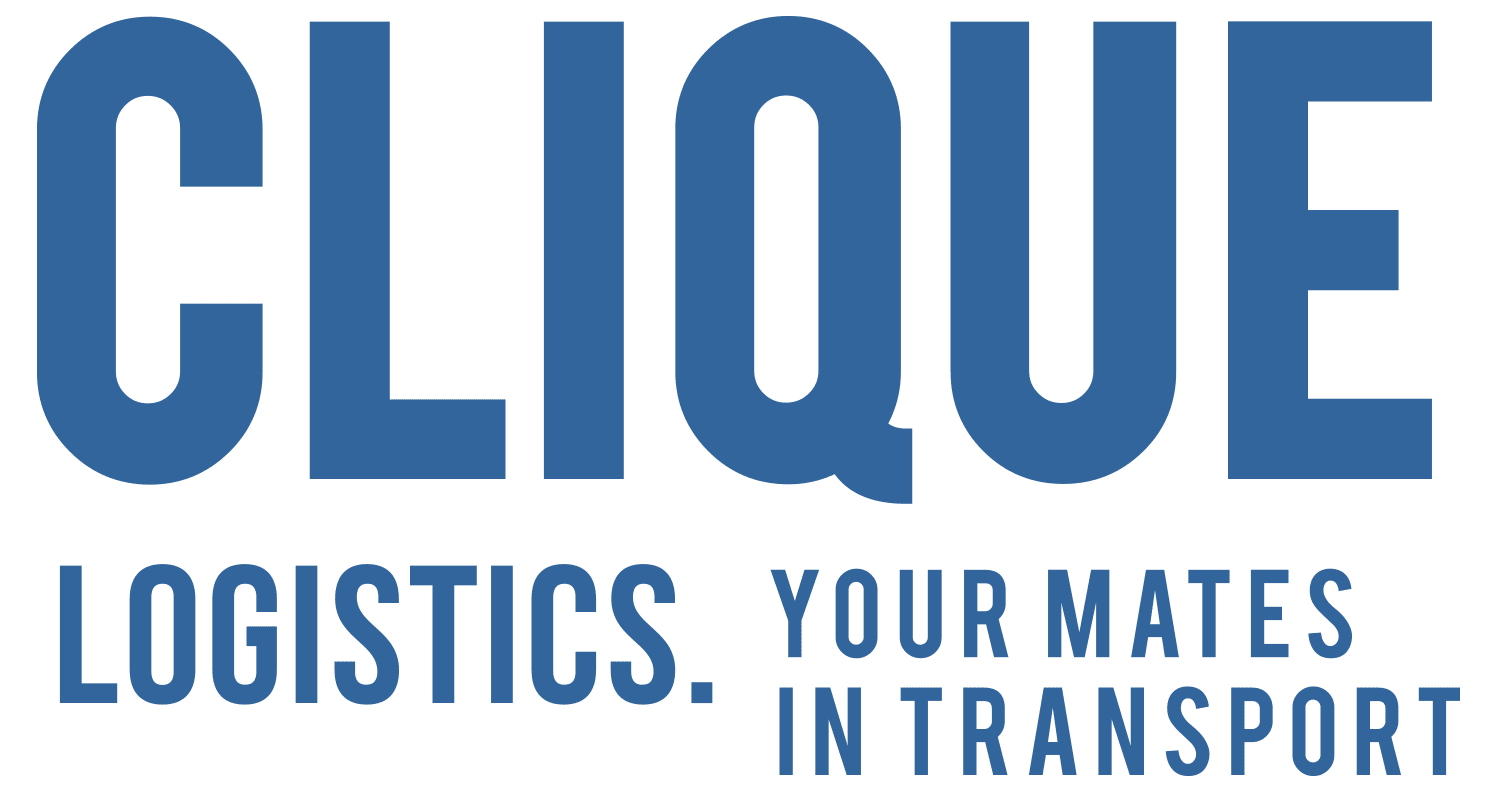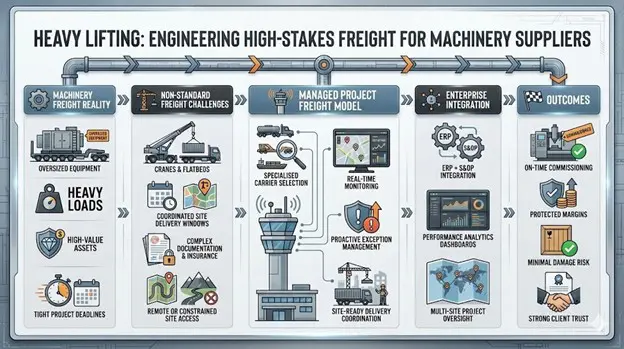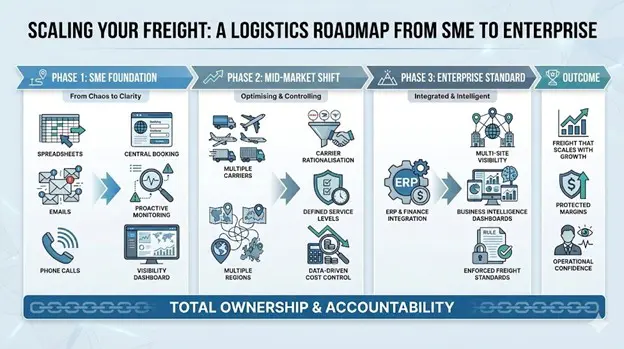Efficiency is key in running a small to medium-sized enterprise (SME) in Australia today. But for many businesses, freight management remains a complex and time-consuming aspect of operations. Understanding the basics of freight management can empower you to streamline your supply chain, reduce costs, and free up valuable time to focus on growth.
What is Freight Management?
Freight management is the process of planning, coordinating, and overseeing the movement of your goods from origin to destination. It encompasses a range of tasks, including:
- Selecting the Right Carrier: Different carriers specialise in various freight types and destinations. Finding the most cost-effective and reliable option requires research and understanding factors like transit times, insurance options, and service areas.
- Negotiating Rates: Securing competitive rates on your freight shipments can significantly impact your bottom line. This involves understanding market trends, carrier options, and confidently negotiating based on your freight volume and requirements.
- Documentation and Compliance: Customs regulations and proper documentation are essential to avoid delays and additional costs. Familiarising yourself with relevant regulations and ensuring accurate documentation is crucial for a smooth freight movement process.
- Tracking and Tracing: Real-time tracking of your shipments provides peace of mind and allows for proactive inventory management. Many carriers and logistics providers offer online tracking tools to monitor the location and status of your goods.
- Risk Management: Unexpected events like delays or damage can disrupt your operations. A sound freight management strategy involves understanding potential risks and implementing measures to mitigate them, such as insurance coverage or contingency plans.
Why Outsource Freight Management?
While it’s possible to manage freight in-house, outsourcing to a reputable freight management company offers several advantages for Australian SMEs:
- Cost Savings: Freight management companies leverage their network of carriers to negotiate competitive rates you might not be able to secure on your own. Additionally, their expertise can help identify cost-saving opportunities like route optimisation or modal selection.
- Expertise and Efficiency: Freight management companies have a team of experienced professionals who handle the complexities of the process, saving you valuable time and resources to focus on core business activities.
- Risk Mitigation: Their knowledge and experience can navigate potential issues like delivery delays or damaged goods, ensuring your shipments arrive safely and on time.
- Technology and Innovation: Many companies utilise advanced freight management systems that provide real-time tracking, data-driven insights, and streamlined communication, enhancing overall efficiency.
Taking Control: How to Navigate Freight Management as an SME
Even without outsourcing, Australian SMEs can take proactive steps to streamline their freight management:
- Understanding Your Needs: Analyse your typical freight volume, shipment destinations, and budget to determine your specific requirements.
- Researching Carrier Options: Compare different carriers based on their service offerings, pricing structures, areas of expertise, and online reviews to find suitable partners.
- Negotiating Contracts: Don’t be afraid to negotiate rates and service terms with potential carriers. Clearly outline your expectations and leverage your projected freight volume to secure favorable terms.
- Staying Informed: Keep yourself updated on industry trends, changes in regulations, and fuel price fluctuations to adapt your strategies when necessary.
Conclusion
By demystifying freight management and understanding its key components, Australian SMEs can approach this aspect of their business with more confidence. Whether you choose to manage it in-house or leverage the expertise of a freight management company, a proactive approach can significantly improve efficiency, reduce costs, and free up valuable resources to focus on what matters most – growing your business.




